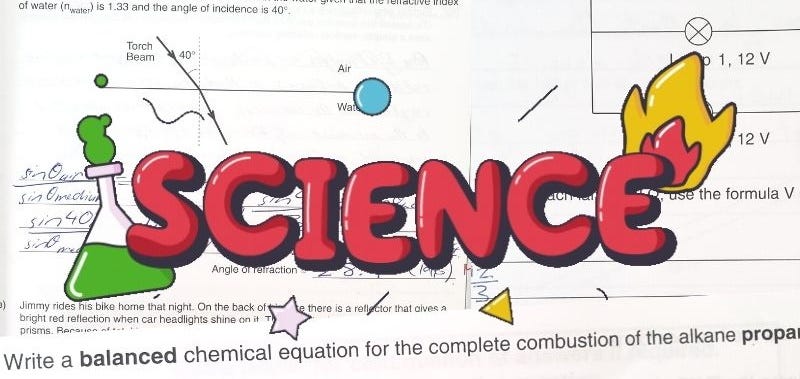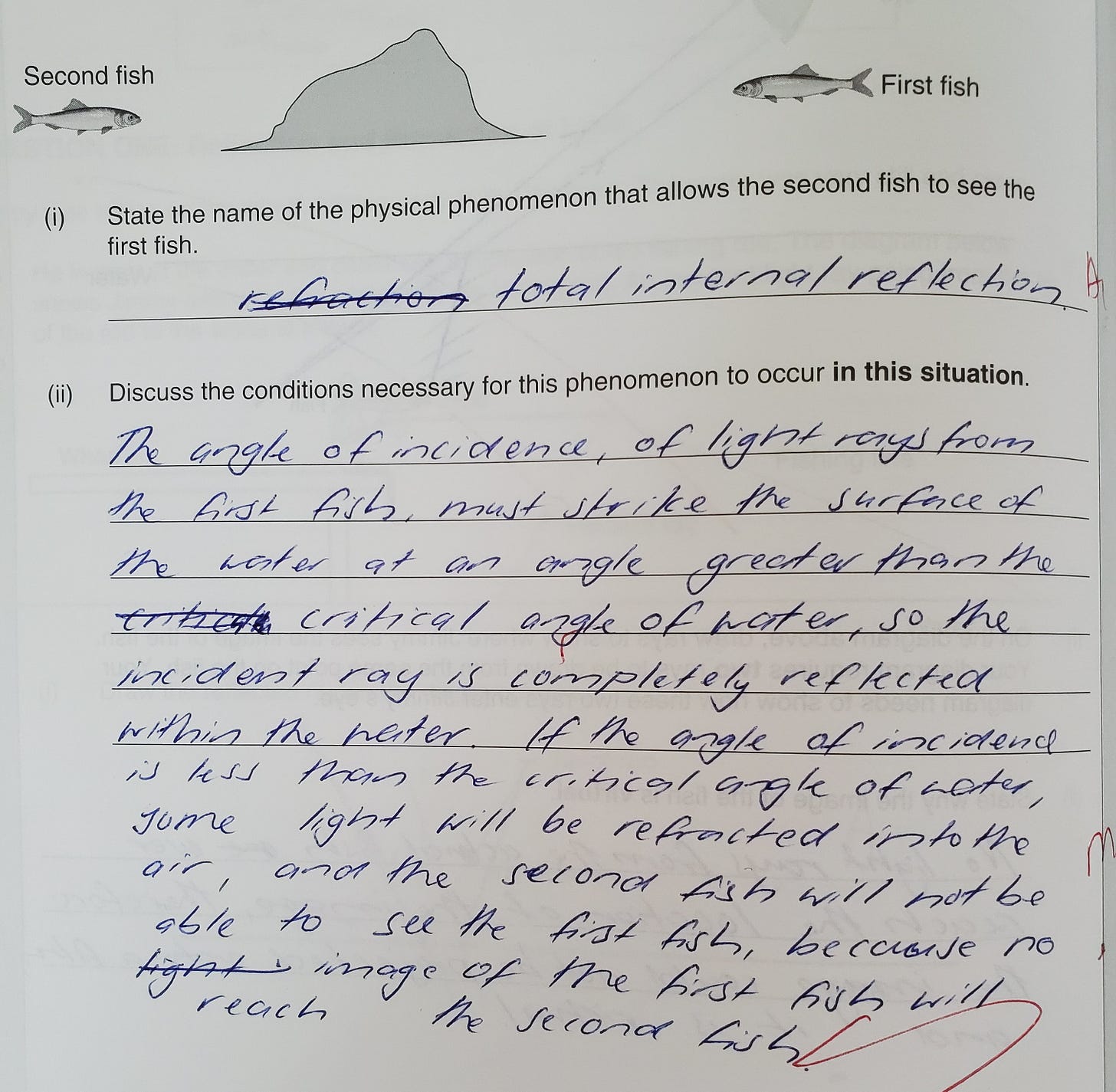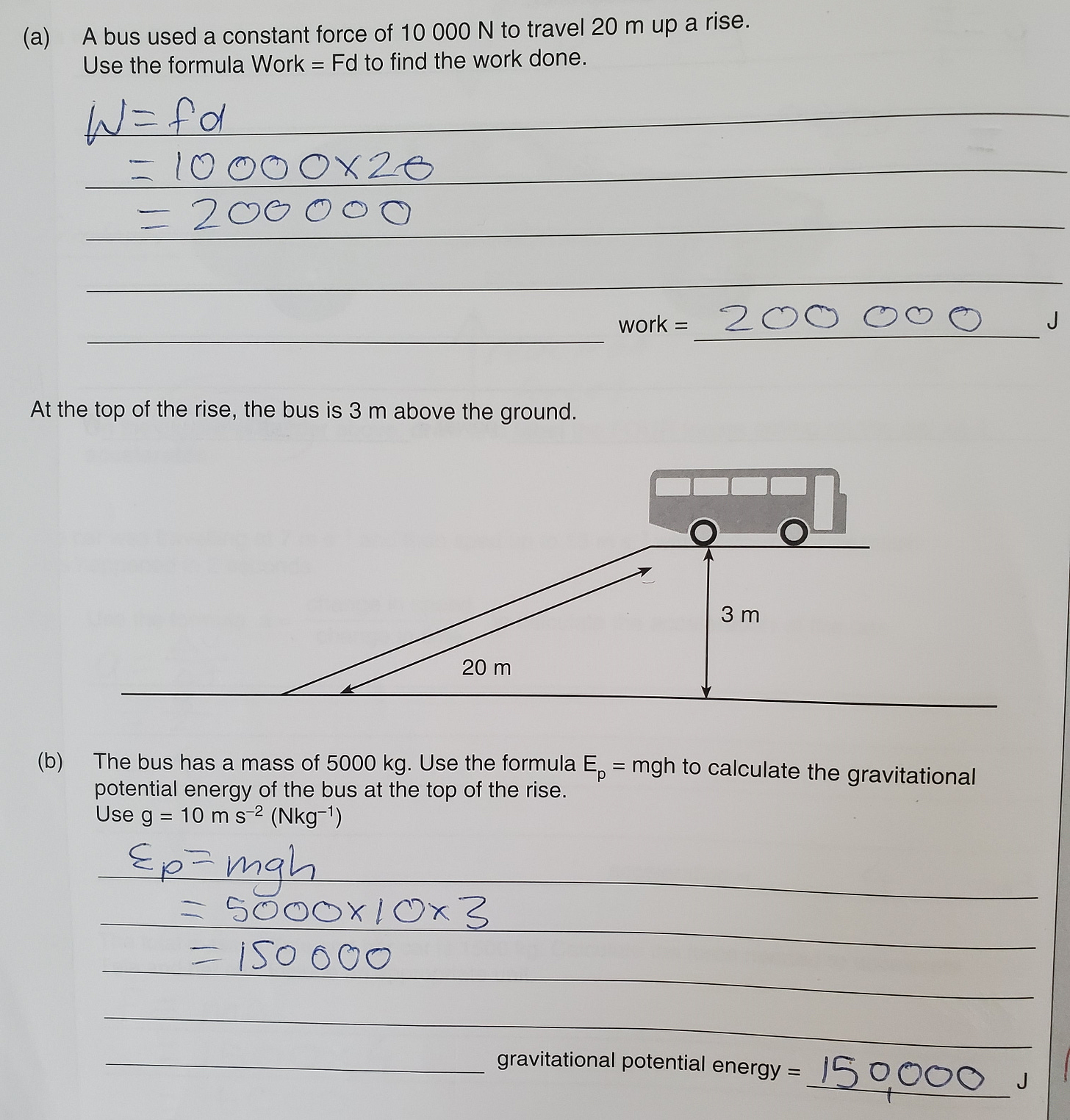How to help your teen study for their high school science subjects
What's involved? Learning facts? Learning concepts? A dissection of studying for high school science, including a look at my own real exam answers.
I have written a lot about essay writing and how to study for chemistry, but it’s high time I had a closer look about studying for science in general.
After all, I have a science degree! What have I been doing?!
Here in New Zealand, science is a compulsory general subject until Year 11 (15/16 year olds). Perhaps it’s a similar situation wherever you are?
Point being, there a lot of teens out there struggling with science. This of course is exacerbated by students not being taught how to study.
So today I want to break down the process of studying for science subjects, because the truth is it is a subject that does not need to elude so many teens.
The importance of understanding
I think a common perception of studying for science subjects is that it involves learning a lot of facts.
But science is not just about rote learning the periodic table. There are also a lot of concepts for teens to get their heads around.
This means that your teen cannot fake understanding. They might be able to regurgitate a few easier ideas onto the exam paper, but as soon as the questions get a bit harder they will need to actually understand the relevant topic.
I think this is the main hurdle for a lot of teens when it comes to science.
In the example below — a physics question from one of my real high school exams — the first part was fairly straight forward — you either knew the answer, “total internal refraction”, or you didn’t.
But the second part couldn’t be faked. If I hadn’t understood total internal refraction there is no way I could have got full marks for this answer. I couldn’t have faked explaining how it works while also answering the specific question being asked, i.e. talking about the fish.
So what can you do to help?
First of all, set expectations at a realistic level.
Science is hard, and a lot of concepts will take longer than a day to for your teen to get their head around.
Secondly, try to help your teen pinpoint exactly what they’re struggling with. What topic can’t they get a handle on? What topics are they avoiding studying because they find them hard?
Those are the topics they need to get sorted before moving on.
If your teen is struggling to understand, this could be why they’re not feeling motivated. It’s hard to study at the best of times, let alone when you feel like you’re not making progress.
Also, your teen won’t be able to build on their knowledge if they don’t understand something, particularly if it’s fundamental.
A lot of teens try to get away with an overly simplistic understanding of their science subjects, which makes trying to answer exam questions difficult.
Exam questions are designed to test what your teen knows. Do they really know their stuff? Or do they only kind of get it…?
If they try to push on without sorting out their understanding, they risk having a shaky at best understanding of the topic, which won’t hold up against tough exam questions, and will make studying really frustrating.
Practice
There is a practice element to any subject of course, but a lot of science topics at high school will require your teen to solve problems / equations and apply mathematical principles, in which case practice is particularly important.
For instance, the exam question below from one of my real high school exams is a bread and butter question for Chemistry.
Not only does the question require understanding chemistry principles, it requires mathematical skills as well.
Once your teen wraps their head around these types of questions, the only thing left to do is practice them until they don’t make mistakes.
By the time of the exam, we want your teen to find answering these types of mathsey questions relatively easy.
They won’t have time to sit there painstakingly figuring things out. They will need to recognise what the question requires them to do quickly and work through it as efficiently as possible.
Same goes for physics. Maths is the purest science, and physics is next, so naturally there is no escaping maths in a physics exam.
Below is an electronics question from one of my real high school exams. You can see that it’s basically an applied mathematics question. (Also note how I set out my answer — nice and neatly with one row per step.)
Here’s another one. Maths maths maths. Practice practice practice.
If you’re breaking out in a sweat looking at these questions — it’s all good there’s no test today — I’m just trying to show why practice is so important for a lot of science study.
Application
As I mentioned above, exam questions are designed to test what your teen knows.
This means your teen needs to practice applying what they have been studying.
I think of this as a sub-skill of studying. The main feature of exam study will be absorbing and processing (writing study notes etc), but it also really really needs to include applying the information that’s being shoved into their brains.
This is where past exams and practice questions come in.
It’s a very bad idea to be answering exam questions for the first time in the exam.
If your teen has never attempted a past exam or practice question before the real exam, they will be taking a gamble as to whether they actually understand the topic sufficiently to answer the specific questions being asked.
In the exam, your teen will also be under time pressure, making it harder for them to think clearly and quickly. This is where all of the practice is going to pay off.
Uncover the wonder
Science is amazing. Like, truly amazing. I realise I’m stating the obvious here, but I can’t help but gush.
But sadly, probably for a multitude of reasons, that wonder often gets lost.
It’s an indictment on our education systems that any teen might think science is “boring”. Gahh!!! So sad!!
But, I think this is where you can help.
You can help uncover the wonder of science that lies behind each subject.
With a practically endless number of educational videos and resource at our disposal, there is no excuse to not to school up together, watch some amazing stuff, and learn about the real world application of what your teen is learning about at school.
One of my favourite sources for learning about this amazing planet we inhabit is BBC Earth. They have really awesome videos and ideas for kids too, but all of the content is awesome.

My main message today is that I really don’t think science needs to elude so many teens.
Yes there are some difficult topics to get their head around, but as always with studying, if you can help them to identify what the specific problem areas are, you should be able to help them ‘clear the path’ of their understanding so that they can continue on without being weighed down by frustration and a lack of progress.
The key takeaways:
Your teen can’t fake understanding. If they don’t understand something, don’t just push through; take the time to sort it out.
Practice answering questions using past exam papers and practice questions. Your teen has to practice applying their knowledge to actual questions.
Uncover the wonder and real world application of science. It’s so much more interesting when it’s not learnt in a vacuum.
If your teen is struggling with science, I hope that these tips will help them navigate their way through with a bit more ease.
Wishing your teen the very best of luck,
Clare
P.S. Is your teen struggling with science? Do they like it? Do they loathe it? Have you come across any helpful resources? Would love to hear from you in the comments.







